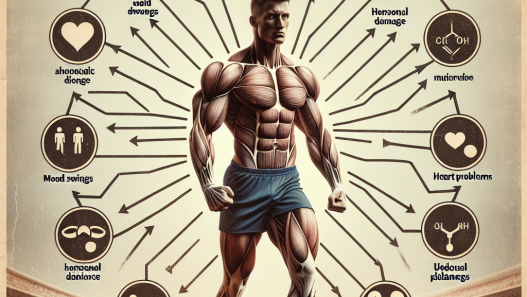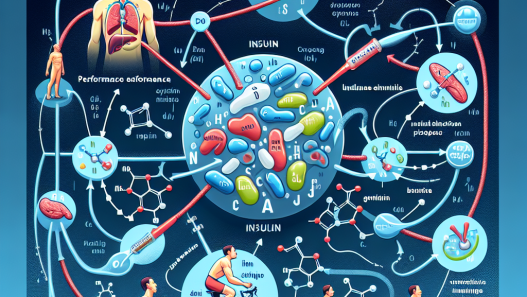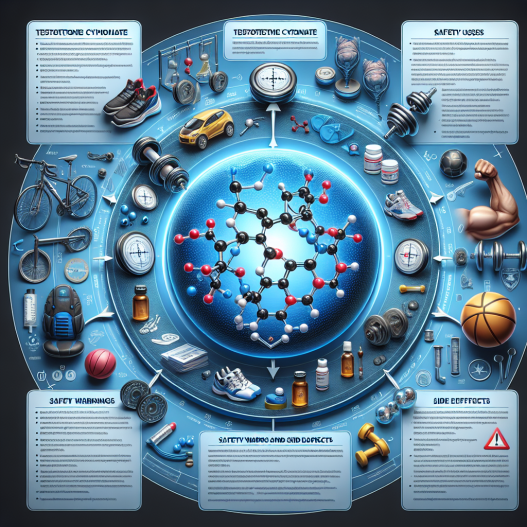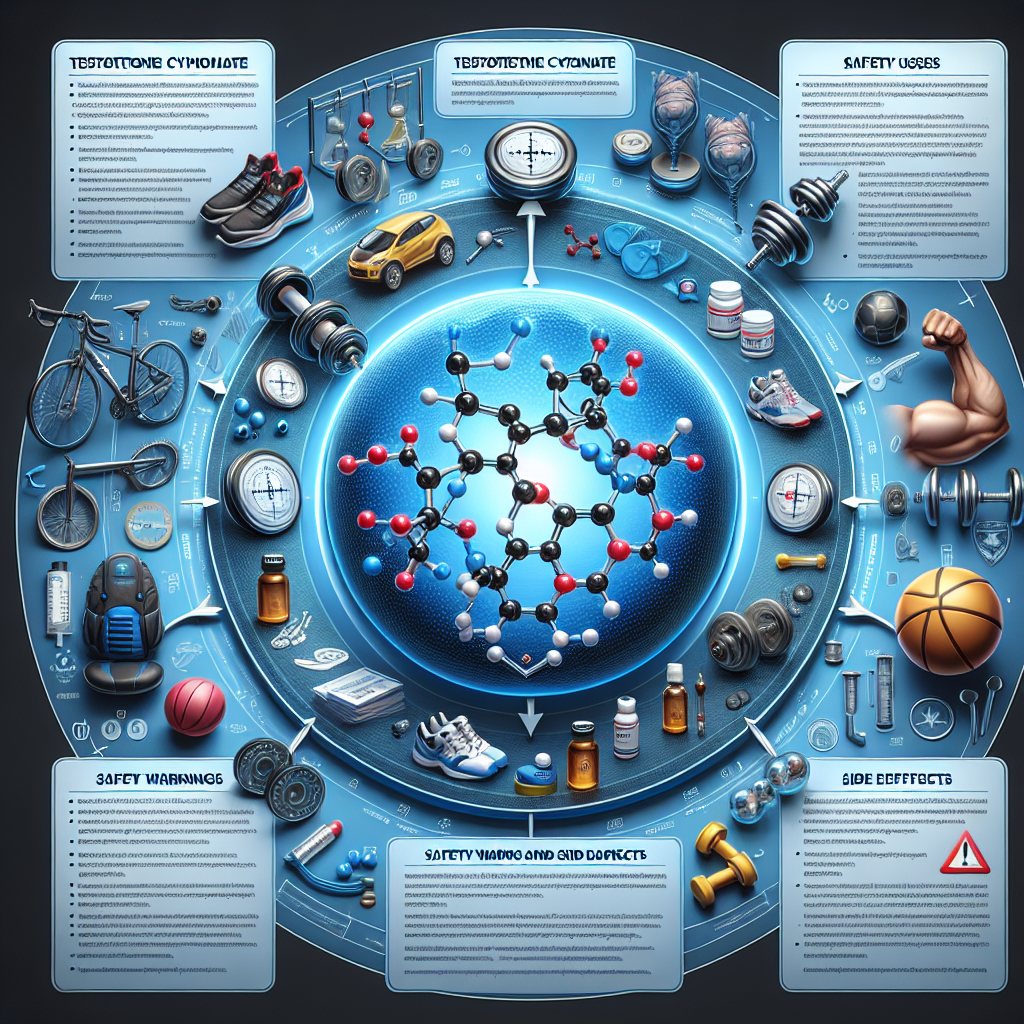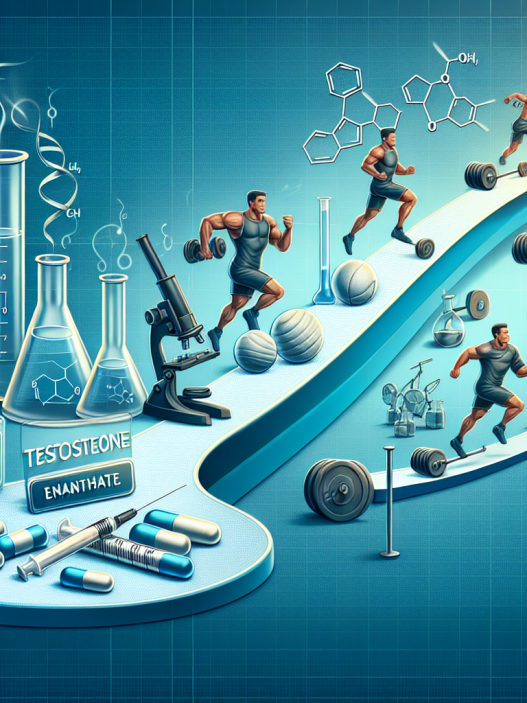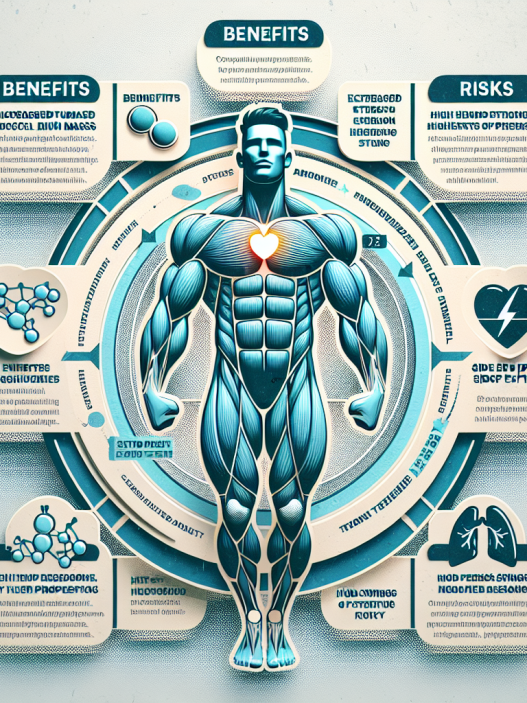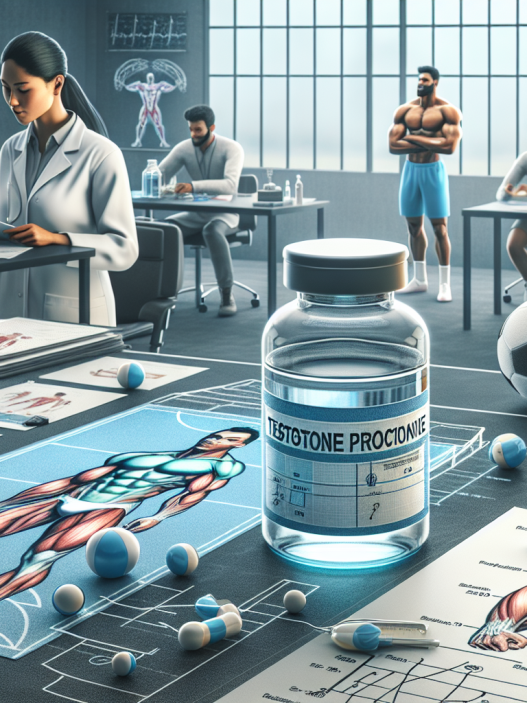-
Table of Contents
- The Importance of Testosterone Cypionate in Sports Pharmacology
- The Role of Testosterone in Athletic Performance
- The Pharmacokinetics of Testosterone Cypionate
- The Pharmacodynamics of Testosterone Cypionate
- Real-World Examples
- The Benefits of Testosterone Cypionate in Sports
- Risks and Side Effects
- Expert Opinion
- Conclusion
- References
The Importance of Testosterone Cypionate in Sports Pharmacology
Sports pharmacology is a rapidly growing field that focuses on the use of pharmaceuticals to enhance athletic performance. While there are many substances used in sports pharmacology, one that has gained significant attention in recent years is testosterone cypionate. This synthetic form of testosterone has been used by athletes to improve their strength, endurance, and overall performance. In this article, we will explore the importance of testosterone cypionate in sports pharmacology and its effects on athletic performance.
The Role of Testosterone in Athletic Performance
Testosterone is a naturally occurring hormone in the body that plays a crucial role in the development of male characteristics, such as muscle mass, bone density, and strength. It is also responsible for regulating energy levels, mood, and libido. In sports, testosterone is known to enhance athletic performance by increasing muscle mass, strength, and endurance. It also aids in the recovery process after intense physical activity.
However, the use of testosterone in sports is controversial, as it is considered a performance-enhancing drug. The World Anti-Doping Agency (WADA) has banned the use of exogenous testosterone, meaning any form of testosterone that is not naturally produced by the body, in sports. This includes testosterone cypionate, which is a synthetic form of testosterone.
The Pharmacokinetics of Testosterone Cypionate
Testosterone cypionate is an injectable form of testosterone that is slowly released into the body over a period of 7-14 days. It is commonly used in sports pharmacology due to its long-lasting effects and ease of administration. Once injected, testosterone cypionate is absorbed into the bloodstream and binds to androgen receptors in various tissues, including muscle cells. This binding triggers a series of biochemical reactions that lead to an increase in protein synthesis, resulting in muscle growth and strength.
The half-life of testosterone cypionate is approximately 8 days, meaning it takes 8 days for half of the injected dose to be eliminated from the body. This slow elimination rate allows for a sustained release of testosterone, providing athletes with a steady supply of the hormone for an extended period of time.
The Pharmacodynamics of Testosterone Cypionate
The pharmacodynamics of testosterone cypionate are closely linked to its pharmacokinetics. As mentioned earlier, testosterone cypionate binds to androgen receptors in various tissues, including muscle cells. This binding triggers a series of biochemical reactions that lead to an increase in protein synthesis, resulting in muscle growth and strength.
Additionally, testosterone cypionate also increases the production of red blood cells, which are responsible for carrying oxygen to the muscles. This increase in oxygen delivery allows for improved endurance and performance during physical activity. It also aids in the recovery process by reducing fatigue and promoting muscle repair.
Real-World Examples
The use of testosterone cypionate in sports has been a topic of controversy for many years. However, there have been several high-profile cases where athletes have been caught using this substance to enhance their performance. One such example is the case of American sprinter, Marion Jones, who was stripped of her Olympic medals after testing positive for testosterone cypionate in 2007 (USADA, 2007).
Another example is the case of former professional cyclist, Lance Armstrong, who admitted to using testosterone cypionate as part of his doping regimen during his career (BBC, 2013). These cases highlight the prevalence of testosterone cypionate use in sports and the potential consequences for athletes who choose to use it.
The Benefits of Testosterone Cypionate in Sports
While the use of testosterone cypionate in sports is controversial, there are some potential benefits for athletes who use it. These include:
- Increased muscle mass and strength
- Improved endurance and performance
- Enhanced recovery after intense physical activity
- Reduced fatigue and improved energy levels
- Promotion of muscle repair
However, it is important to note that these benefits come with potential risks and side effects, which we will discuss in the next section.
Risks and Side Effects
As with any performance-enhancing drug, the use of testosterone cypionate in sports comes with potential risks and side effects. These include:
- Increased risk of heart disease and stroke
- Liver damage
- Acne and oily skin
- Hair loss
- Mood swings and aggression
- Testicular atrophy (shrinkage of the testicles)
Additionally, the use of testosterone cypionate can also lead to a condition known as hypogonadism, where the body stops producing testosterone naturally. This can result in a range of symptoms, including decreased libido, erectile dysfunction, and infertility.
Expert Opinion
Despite the potential risks and side effects, some experts argue that the use of testosterone cypionate in sports can be beneficial if used correctly and under medical supervision. Dr. Harrison Pope, a professor of psychiatry at Harvard Medical School, believes that testosterone cypionate can be used safely and effectively in sports if monitored by a physician (Pope, 2014). He also argues that the negative stigma surrounding the use of performance-enhancing drugs in sports needs to be re-evaluated.
On the other hand, Dr. Gary Wadler, a former chairman of WADA’s Prohibited List and Methods Committee, believes that the use of testosterone cypionate in sports is unethical and should be banned (Wadler, 2014). He argues that the potential risks and side effects far outweigh any potential benefits and that the use of performance-enhancing drugs goes against the spirit of fair play in sports.
Conclusion
In conclusion, testosterone cypionate is a synthetic form of testosterone that has gained significant attention in sports pharmacology due to its ability to enhance athletic performance. While it has been used by athletes to improve their strength, endurance, and overall performance, its use is controversial and banned by WADA. The pharmacokinetics and pharmacodynamics of testosterone cypionate make it an attractive option for athletes, but it comes with potential risks and side effects. It is essential for athletes to weigh the potential benefits against the risks and make an informed decision before using this substance in sports.
References
BBC. (2013). Lance Armstrong admits to doping in Oprah Winfrey interview. Retrieved from https://www.bbc.com/sport/cycling/21036437
Pope, H. G. (2014). The use of testosterone in sports: a controversial issue. The Journal of Clinical Endocrinology & Metabol

